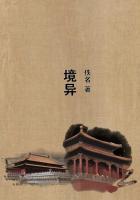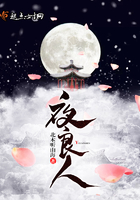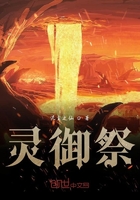That night James, the servant, took leave of his dead master and of us. He carried to England by word of mouth--for we dared write nothing down--the truth concerning the King of Ruritania and Mr.
Rassendyll. It was to be told to the Earl of Burlesdon, Rudolf's brother, under a pledge of secrecy; and to this day the earl is the only man besides ourselves who knows the story. His errand done, James returned in order to enter the queen's service, in which he still is; and he told us that when Lord Burlesdon had heard the story he sat silent for a great while, and then said:
"He did well. Some day I will visit his grave. Tell her Majesty that there is still a Rassendyll, if she has need of one."
The offer was such as should come from a man of Rudolf's name, yet I trust that the queen needs no further service than such as it is our humble duty and dear delight to render her. It is our part to strive to lighten the burden that she bears, and by our love to assuage her undying grief. For she reigns now in Ruritania alone, the last of all the Elphbergs; and her only joy is to talk of Mr. Rassendyll with those few who knew him, her only hope that she may some day be with him again.
In great pomp we laid him to his rest in the vault of the kings of Ruritania in the Cathedral of Strelsau. There he lies among the princes of the House of Elphberg. I think that if there be indeed any consciousness among the dead, or any knowledge of what passes in the world they have left, they should be proud to call him brother. There rises in memory of him a stately monument, and people point it out to one another as the memorial of King Rudolf. I go often to the spot, and recall in thought all that passed when he came the first time to Zenda, and again on his second coming. For I mourn him as a man mourns a trusted leader and a loved comrade, and I should have asked no better than to be allowed to serve him all my days. Yet I serve the queen, and in that I do most truly serve her lover.
Times change for all of us. The roaring flood of youth goes by, and the stream of life sinks to a quiet flow. Sapt is an old man now; soon my sons will be grown up, men enough themselves to serve Queen Flavia. Yet the memory of Rudolf Rassendyll is fresh to me as on the day he died, and the vision of the death of Rupert of Hentzau dances often before my eyes. It may be that some day the whole story shall be told, and men shall judge of it for themselves. To me it seems now as though all had ended well.
I must not be misunderstood: my heart is still sore for the loss of him. But we saved the queen's fair fame, and to Rudolf himself the fatal stroke came as a relief from a choice too difficult: on the one side lay what impaired his own honor, on the other what threatened hers. As I think on this my anger at his death is less, though my grief cannot be. To this day I know not how he chose; no, and I don't know how he should have chosen. Yet he had chosen, for his face was calm and clear.
Come, I have thought so much of him that I will go now and stand before his monument, taking with me my last-born son, a little lad of ten. He is not too young to desire to serve the queen, and not too young to learn to love and reverence him who sleeps there in the vault and was in his life the noblest gentleman I have known.
I will take the boy with me and tell him what I may of brave King Rudolf, how he fought and how he loved, and how he held the queen's honor and his own above all things in this world. The boy is not too young to learn such lessons from the life of Mr.
Rassendyll. And while we stand there I will turn again into his native tongue--for, alas, the young rogue loves his toy soldiers better than his Latin!--the inscription that the queen wrote with her own hand, directing that it should be inscribed in that stately tongue over the tomb in which her life lies buried.
"To Rudolf, who reigned lately in this city, and reigns for ever in her heart.--QUEEN FLAVIA."
I told him the meaning, and he spelt the big words over in his childish voice; at first he stumbled, but the second time he had it right, and recited with a little touch of awe in his fresh young tones:
RUDOLFO
Qui in hac civitate nuper regnavit In corde ipsius in aeternum regnat FLAVIA REGINA.
I felt his hand tremble in mine, and he looked up in my face.
"God save the Queen, father," said he.
End















